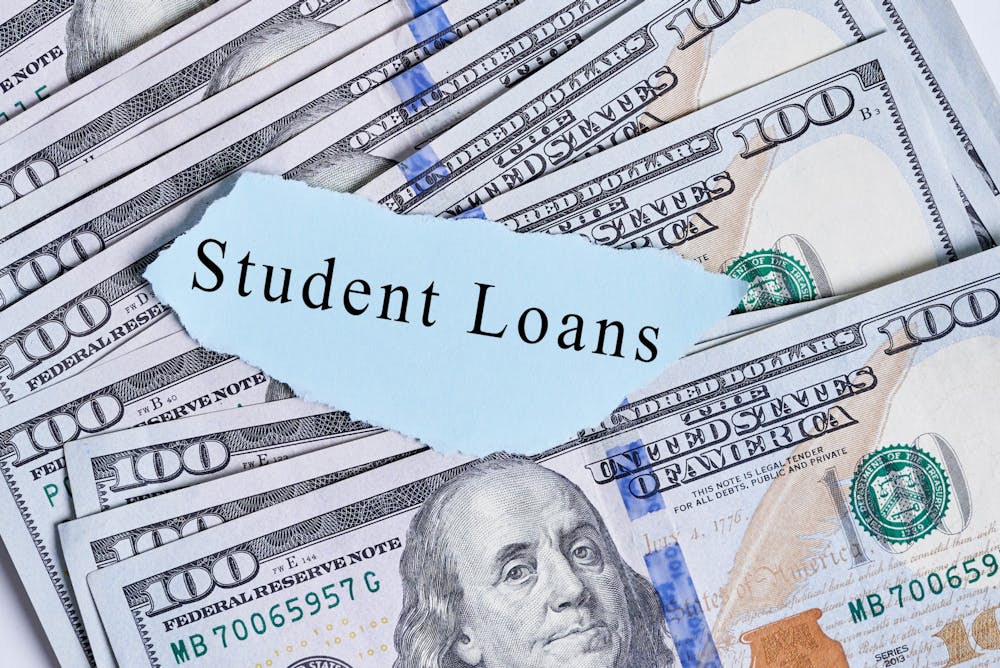By Gauri Patel
Staff Writer
On Tuesday, the Supreme Court held a hearing on President Joe Biden’s student loan forgiveness plan that would cancel up to $20,000 in student debt for borrowers with limited earnings, according to NPR.
The program would allow those who earn less than $125,000 a year, or $250,000 for couples who file taxes jointly, to be eligible for up to $10,000 in debt cancellation. Pell Grant recipients, who make up the majority of student loan borrowers, are eligible for up to $20,000, according to NBC.
Biden announced the plan last August, describing how the cost of higher education has significantly increased in recent years.
“An entire generation is now saddled with unsustainable debt in exchange for an attempt, at least, at a college degree,” Biden said during the announcement. “The burden is so heavy that even if you graduate, you may not have access to a middle-class life that a college degree once provided.”
If the program is implemented, 43 million student loan borrowers will benefit, and nearly 45%, or 20 million people, can have their remaining student debt fully canceled.
The program, which is estimated to cost $400 billion, has been blocked since the 8th U.S. Circuit Court of Appeals issued a temporary hold in October to consider appeals from two legal challenges, including officials in six GOP-led states who had their lawsuits against the program dismissed by a federal judge, according to NBC.
The Biden Administration appealed to the Supreme Court, which agreed to take up the two cases, according to Forbes.
The Supreme Court heard arguments of two legal challenges. The first is Biden v. Nebraska, in which six GOP-led states (Arkansas, Iowa, Kansas, Missouri, Nebraska and South Carolina) are suing to overturn the program. The second is Department of Education v. Brown, which is brought by two individual borrowers who hold student loan debt: Myra Brown and Alexander Taylor. They are backed by the conservative Job Creators Network, a conservative-leaning advocacy organization, according to CNBC.
Both challengers argue that the Biden Administration is overstepping its authority, according to Forbes. The Republican-led states say they would be harmed financially if the forgiveness program goes into effect as borrowers with commercial Federal Family Education Loans (FFEL), an older federal student loan program, would be encouraged to consolidate those loans into the Department of Education’s Direct lending program.
This issue is primarily focused on Missouri's Higher Education Loan Authority, or MOHELA, which is the nation’s largest loan servicer. MOHELA is not a party in the lawsuit, leading to questions over the authority of Missouri to assert its interests concerning a separate entity, according to Forbes.
“It's been set up as an independent corporate entity with the ability to bring suits on its own," Justice Elena Kagan said, according to NPR. "Usually we don't allow one person to step into another's shoes and say, 'I think that person has suffered a harm, even if the harm is very great.”’
As for the second case, Job Creators Network argues that the program has arbitrary eligibility rules concerning which individuals will receive debt forgiveness, the amount of debt that will be forgiven and which types of debt will qualify for the program. They claim that normal regulatory procedures requiring periods of public comment were not followed, according to Forbes.
The Biden Administration refuted these arguments through Solicitor General Elizabeth B. Prelogar, who insisted the administration is acting within the law, specifically under the Higher Education Relief Opportunities For Students Act of 2003. This act grants the U.S. Secretary of Education the authority to “modify” or “waive” federal student loan programs during national emergencies, according to CNBC. The country has been operating under an emergency declaration since March 2020 due to the Covid-19 pandemic.
There are doubts about whether the program will go into effect.
Dan Urman, a law professor at Northeastern University predicts the loan forgiveness program will not survive the Supreme Court. He said in an interview with CNBC that, according to conservative justices, government agencies “violate the separation of powers” and exert too much authority.
Laasya Seelam, a freshman biomedical engineering major, also believes that student loan forgiveness is not a long-term solution.
“Instead of student loan forgiveness, the Biden Administration should work towards putting a cap on tuition costs if they want to cut down student debt,” Seelam said.
According to data received from U.S. Department of Education Integrated Postsecondary Education Data System surveys, CollegeCalc reports that the average annual in-state college tuition amount for New Jersey was $17,268 for the 2021-2022 academic year. This is $2,138 higher than the average of other institutions in the United States and ranks New Jersey as the 14th most expensive state to attend college. According to The Institute for College Access and Success, New Jersey college graduates accrue an average debt of $35,117 as of 2019-2020, which is the sixth highest in the nation on this measure.
About 1.12 million New Jersey residents have applied for federal student loan forgiveness, according to data from Politico.
Now that oral arguments have concluded, it is expected that the Supreme Court will issue a decision in May or June, according to NPR. Unless the court decides that the GOP-led states have no standing to sue and dismiss the case, the Biden Administration’s student loan forgiveness program will likely be struck down.







